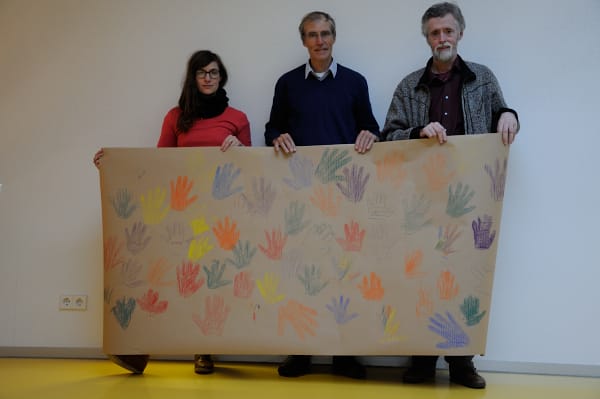The latest BCN Neswletter was out this month we are thrilled to share with you an interview by Sanne Brederoo, a PhD candidate in the Experimental Psychology Group. She spoke to Ton Groothuis and Reint Geuze, who, along with Nele Zickert, recently launched their large-scale study on handedness, for which they aim to have a sample size of 30,000!
Why be afraid of fear? What are mental disorders? And how can patients be empowered to become their own doctors? Such questions were discussed in the Studium Generale series on “Everyday Madness”.
Children’s development is mostly seen as gradual and increasing. However, when the development of individual children is observed more closely, you see many sudden improvements, but also fallbacks and regression. This variability turns out to be a crucial part of human development.
For the last few years, the Sinterklaas celebration has raised some profound questions: Is the character of Zwarte Piet racist or not? And should we change the celebration? In a current project, we combine insights on social identity, inter-group relations and attitude polarisation to investigate people’s willingness to change the Sinterklaas celebration.
Mental health problems have become a topic of public debate. Last month, a Studium Generale lecture series addressed the situation in the Netherlands and beyond.
There is a lot of discussion about the pharmacological treatment of ADHD. This discussion, however, might miss an important aspect, namely whether our general understanding of how pharmacological treatments work in developmental diseases is correct. I say, we miss our opportunities!
We continue this week’s theme of sharing the experiences of students who have been (or still are!) on exchange. Find out what a student from Mexico thought about her studies in the Psychology Department at the RUG and where in the world Groningen students went on exchange this year.
Be immersed in a different culture, feel the vibe of an unfamiliar environment, and embrace diversity to gain new perspectives. Learn a new language, develop valuable career skills, and be independent to challenge yourself. Make new friends, have fun and be excited – break out of your academic routine! Learn about the exchange experiences of two RUG students.
As we approached the end of the first academic year at Mindwise, we reflected back on the aims and values of this project. From the very beginning, we were certain that Mindwise should be useful, relevant, and interesting to the students of the Psychology department. We wanted them to contribute to the posts on Mindwise […]
Patients with Dissociative Identity disorder (DID) have problems in retrieving specific memories from their personal past. Interestingly, this overgeneral memory retrieval does not differ between patients’ multiple identities.








